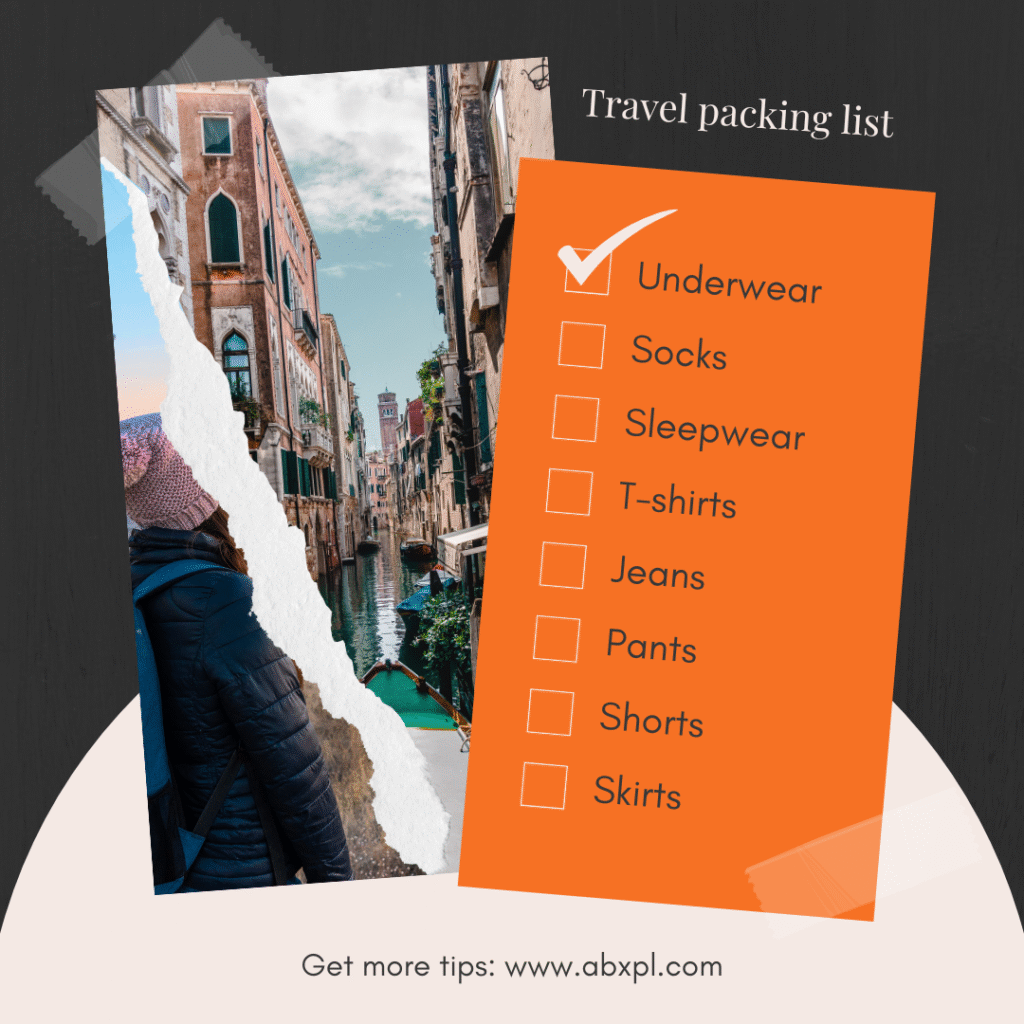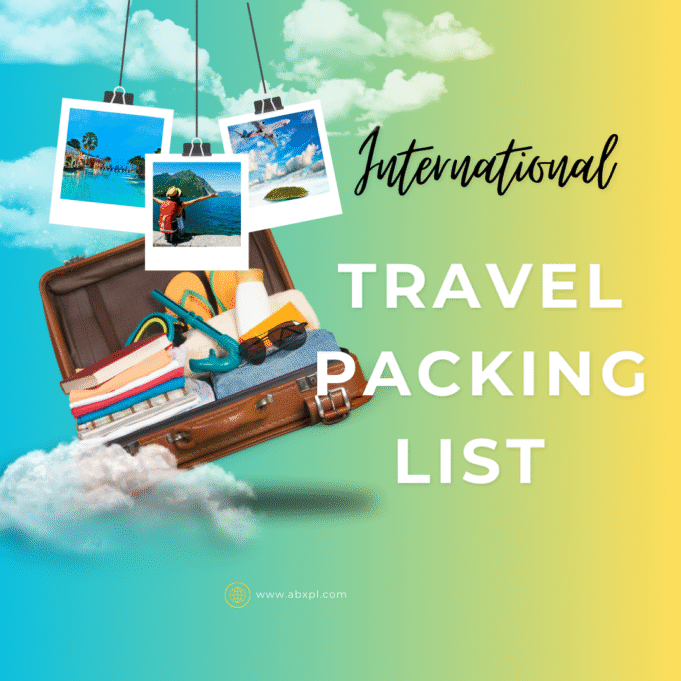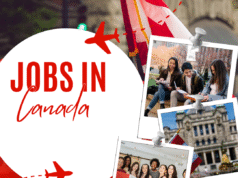If you’re leaving home for university, an exchange program, or remote work overseas, this study abroad packing list is the only checklist you’ll need. It walks you through documents, essential gear, clothing and climate strategies, budget and visa considerations, health and safety items, and specialty packs for digital nomads and job hunters — all organized so you can pack smart, travel light, and arrive ready to study, work, and live abroad.
Table of contents
- Why a smart study abroad packing list matters
- Top planning steps before you pack (visa, money, insurance)
- The documents & digital copies checklist — don’t leave home without these
- Clothing — climate, culture, and capsule packing (with examples)
- Electronics & tech essentials for students, remote workers, and digital nomads
- Toiletries, meds & health packing (vaccines, prescriptions, and travel health)
- Academic & study gear (textbooks, stationery, study hacks)
- Dorm, flatshare & kitchen essentials for student life abroad
- Money, cards, phones & staying connected while abroad
- Packing strategies: luggage, compression, carry-on tactics and airline rules
- Budget travel & cost-saving packing tips for students and nomads
- Visa guidance, work rights, and post-study opportunities (quick reference)
- Culture, etiquette & what to pack for local integration
- Special lists: short programs, internships, research, teachers and volunteers
- Relocation logistics: shipping, storage, and arrival-day checklist
- FAQs about the study abroad packing list (visa, weight, shipping, costs)
- Final checklist & printable quick list
- Social posts for sharing this guide

Why a smart study abroad packing list matters
Packing for study abroad is different from packing for a holiday. You’re relocating your life temporarily or long-term: documents, academic items, region-specific gear, and legal paperwork matter. A smart study abroad packing list helps you:
- Avoid leaving critical documents or medications behind
- Meet visa and entry requirements the first time (reduce stress at immigration)
- Travel within baggage limits economically and avoid excess fees
- Blend into local culture and climates without buying an entire new wardrobe on arrival
This guide is designed to be practical (things you’ll actually use) and optimized for cost-conscious students, visa applicants, budget travelers, digital nomads, and those planning relocations and international job transitions.
Top study abroad packing list steps before you pack (visa, money, insurance)
Before you pack, complete administrative tasks. These steps reduce risk and ensure the items you carry match your needs.
Visa & immigration checks (essential)
- Confirm which visa you need (Student, Exchange, Temporary Study, Work-Study). For U.S. F/M visas and exchange categories see the U.S. Department of State guidance. Travel State
- Check permitted work rights on your visa (example: UK Student visa work rules and permitted hours vary by course level). For official UK guidance see GOV.UK. GOV.UK+1
- For practical training, CPT/OPT (U.S.) and other post-study work schemes, consult official DHS/ICE and USCIS resources. ICE+1
Financial planning & proof of funds
- Gather bank statements, sponsor letters, scholarship award letters and convert a small amount of currency to local cash for arrival costs. (Tip: bring multiple payment methods.)
- Check expected living costs and set a conservative monthly budget — research local rental and food costs (university pages and cost-of-living sites are useful).
Health & travel insurance
- Many student visas require proof of medical insurance or payment of a health surcharge. Buy travel health insurance or a student plan that covers your whole program. For destination-specific vaccine guidance and travel health recommendations, consult the CDC’s Yellow Book and country pages. wwwnc.cdc.gov+1
Pre-arrival admin (housing, arrival logistics)
- Confirm check-in, arrival times, pick-up options, local bank account set-up availability, and local SIM card options. If your university has a pre-arrival checklist, use it.
The documents & digital copies checklist — don’t leave home without these
This section on study abroad packing list should be the first physical layer in your bag: printed documents + secure digital copies.
Physical documents to pack (originals)
- Passport (valid for duration of stay + six months if required)
- Visa approval letter / entry vignette / eVisa / biometric residence permit
- Acceptance letter / Confirmation of Acceptance for Studies (CAS) or enrollment letter
- Financial proof (bank statements, scholarship letters)
- Accommodation confirmation (lease, university housing form)
- Travel itinerary and return ticket (if needed for entry)
- Accommodation & emergency contact list (host university, local emergency number)
- International driver’s permit (if you’ll drive)
- Medical documents: vaccination records, prescriptions (in original Rx + paper note from prescribing physician)
- Vaccination certificates where required (e.g., yellow fever certificate if visiting certain countries)
Digital copies (how to organize)
- Scan and save PDFs in cloud storage (two different cloud services is safer) and encrypt sensitive PDFs.
- Keep a simple offline copy saved on an encrypted USB or offline phone app (in case you can’t reach the cloud).
- Share emergency access with a trusted contact (family or sponsor).
Clothing — climate, culture, and capsule packing
Clothing is heavy. Use a capsule approach: 8–12 pieces that mix & match.
How to plan clothing for your destination
- Check typical temperatures for the months you’ll be there. Pack for layers (base, mid, outer).
- If you’re going to colder climates, invest in one good coat — layering beats multiple bulky jackets.
- For hot/humid climates, pick breathable fabrics (linen, cotton-blends).
Example capsule pack (one semester)
- 3–4 tops (mix casual + one smart top)
- 2–3 bottoms (jeans, chinos, skirt)
- 1 pair of multipurpose shoes (sneakers) + 1 pair of smart shoes/boots
- 1 lightweight rain jacket + 1 warmer outer layer if needed
- Sleepwear, underwear (enough for a week between washes), 4–6 pairs of socks
- 1–2 scarves / accessories (cultural/functional)
- Optional: 1 set of interview professional wear (for job fairs, interviews)
Culture & modesty: what to research and pack
Research local dress codes (places of worship, lab/workplace). Bring one outfit that meets formal/customary expectations. Dressing respectfully helps social and professional integration.
Electronics & tech essentials for students, remote workers, and digital nomads
Electronics are critical for study, remote work, and communication.
Essentials
- Laptop (lightweight, reliable battery life). Back up with cloud & external SSD.
- Universal travel adapter + surge protector (big life-saver).
- Phone & charging cable — consider an unlocked phone if changing SIMs.
- Headphones (noise-cancelling are great for flights & study).
- Portable power bank (large capacity if you’ll be out a lot)
- External SSD or backup drive for coursework and creative projects
For digital nomads & remote employees
- USB-C hub, HDMI cable if you’ll present remotely, and a compact tripod for video calls.
- VPN subscription (for security and accessing geo-restricted resources).
- Local eSIM or international roaming plan — research before leaving.
Data & SIM tips
- Many students prefer local prepaid SIMs — research local providers with good student offers.
- Keep two ways to connect (local SIM + Wi-Fi) so you’re never offline.
Toiletries, meds & health packing (vaccines, prescriptions, and travel health)
Health is non-negotiable. Pack proactively.
Vaccines & travel health
- See CDC Yellow Book guidance for destination-specific vaccine recommendations (plan 4–6 weeks ahead for multi-dose vaccines). wwwnc.cdc.gov+1
Study abroad packing list essential
- Prescription medications in original packaging + copy of prescription + doctor’s letter (names of active ingredients)
- Over-the-counter basics: paracetamol/ibuprofen, antihistamines, antacids, anti-diarrheal meds
- Personal first aid kit: plasters, antiseptic spray, wound dressings
- Contact lens solution & backup pair of glasses if you need them
- Feminine hygiene products (availability varies by country)
Health insurance & local healthcare
- Confirm what your policy covers abroad (telehealth, hospitalization, repatriation). Many universities require proof. If your visa requires a health surcharge or proof, follow destination policy.
Academic & study gear (textbooks, stationery, study hacks)
Academic success depends on quick access to learning tools.
Essentials for students
- Notebook(s), pens, highlighters — consider digital note apps to reduce weight.
- Lightweight printer paper or subscription to campus printing package.
- USB or external SSD for data backup.
Textbooks & shipping
- Buy core textbooks secondhand or rent. Shipping heavy textbooks increases moving costs. Many students prefer digital editions when available.
Dorm, flatshare & kitchen essentials for student life abroad
You’ll want a few comforts to create a home base.
Bedroom & dorm extras
- Sleep mask, earplugs, extension lead (surge-protected), bed linen (check mattress size), and a compact towel
- Small LED lamp for late study without keeping a roommate awake
Kitchen basics (if allowed in accommodation)
- Reusable cutlery, water bottle, compact food container, and a small chef’s knife where culture and campus rules allow. Many student housings already have basic kitchenware.
Cleaning & household
- Laundry bag, a small sewing kit, detergent, and travel-size cleaning spray — avoid large containers for airline transport.
Money, cards, phones & staying connected while abroad
Get money + communication sorted so you avoid expensive mistakes.
Bank accounts & cards
- Research local student accounts and whether your bank partners with local banks (free ATM withdrawals). Bring an emergency card not linked to the primary bank.
- Inform your bank of travel dates to avoid fraud holds.
Mobile banking & payments
- Set up mobile banking and two-factor authentication ahead of time (know recovery methods).
- Contactless payments are popular in many cities — ensure your card supports them.
Packing strategies: luggage, compression, carry-on tactics and airline rules
Smarter packing saves money and stress.
Luggage choices
- 1 medium suitcase + 1 carry-on + a daypack works well for semester stays. Use soft luggage for flexibility.
- Bring a small foldable bag for weekend trips.
Compression & organization
- Use packing cubes, compression sacks, and a shoe bag to make space and keep things tidy.
Airline baggage & weight tips
- Check your airline’s weight and dimension limits; rules vary by carrier and ticket class. Carry on valuables and documents; check heavier items. (Pro tip: weigh luggage at home to avoid surprise fees.)
Budget travel & cost-saving packing tips for students and nomads
Stretch your budget with smart packing.
Buy locally when cheaper
- Some things (e.g., toiletries, bedding) are cheaper to buy locally in many countries — pack only essentials. Use this to save baggage weight and avoid heavy items.
Multi-purpose items
- Bring items with more than one use (e.g., sarong as beach blanket/curtain/scarf).
Shipping vs. buying on arrival
- Compare shipping rates to buying locally (shipping bulky goods often costs more than buying new or used locally). Use local secondhand marketplaces or student Facebook groups to equip yourself cheaply on arrival.
Visa guidance, work rights, and post-study opportunities
This section explains essential visa facts and where to check them.
UK Student visa work rules (summary)
Most degree-level students can work up to 20 hours per week during term time (some below-degree courses are restricted to 10 hours); always confirm on your visa documentation and sponsor guidance. Official GOV.UK pages outline the specifics. GOV.UK+1
U.S. F-1 visa (work & training)
F-1 students often can work on campus and might become eligible for CPT or OPT practical training programs, but off-campus employment rules are strict and subject to authorization. Consult the U.S. Department of State and DHS/ICE for CPT/OPT rules. Travel State+2ICE+2
Canada & other countries
Work entitlements for study permits vary; always consult the destination’s official immigration site (e.g., IRCC for Canada) for up-to-date rules and exceptions. (Tip: government pages and university international student offices are the authoritative sources.)
Culture, etiquette & what to pack for local integration
A small cultural kit makes a big difference.
Respectful clothing & behavior
- Bring a discrete outfit for religious sites; know local greetings, tipping, and etiquette basics.
Gifts & friends
- Small, lightweight gifts from home (local snacks, stickers, postcards) are always appreciated and can help with friendships.
Special lists: short programs, internships, research, teaching and volunteering
Tailor the generic list depending on your program:
Short study abroad / exchange (4–12 weeks)
- Pack lighter, focus on essentials — check laundry & bedding available. Bring scanned documents and one smart outfit for presentation day.
Internships & work placements
- Prioritize professional attire, copies of professional certifications, a portfolio (digital & small physical copies), and adaptors for office equipment.
Field research / healthcare placements
- Bring PPE (if allowed), sturdy shoes, durable backpack, and additional health documentation as required by your program. Healthcare placements often have vaccine and PPE requirements—check early.
Relocation logistics: shipping, storage, and arrival-day checklist
Relocation is a mini-project. Plan ahead.
Shipping vs. airline baggage
- For long stays (12+ months), shipping some nonessential items can be cheaper — but factor in import taxes and delays. For <12 months, buying locally often beats shipping.
Arrival day checklist
- Local cash, arrival transport booking, SIM, emergency contact numbers, a photocopy of your address/booking, passport & visa.
Temporary storage options
- Research local storage facilities and university storage packages if you return home between semesters.
FAQs about the study abroad packing list
Q: How much luggage can I bring without paying fees?
A: Airline rules vary. Check your carrier for baggage allowance by ticket type and consider weighing luggage at home. Always keep documents, meds, and valuables in carry-on.
Q: Can I bring prescription meds?
A: Yes — but pack them in original packaging with a copy of the prescription and a doctor’s letter. Some countries restrict certain meds — check customs/immigration guidance.
Q: Should I ship heavy items?
A: Usually no for short stays. For long moves, compare shipping costs and local prices; shipping can be costly and slow.
Q: Is the same packing list suitable for digital nomads?
A: Use the core list but emphasize portable electronics, power banks, VPN, and a flexible SIM/data solution. Also add reliable backup storage and extra USB-C cables.
Final checklist & printable quick list on study abroad packing list (pack the night before)
Below is a condensed printable checklist you can use to cross off items as you finish packing.
Documents & digital
- Passport, visa, acceptance/enrollment letter
- Financials, insurance, prescriptions, vaccination record
- Copies in cloud + USB
Clothing & footwear
- Capsule wardrobe, shoes, smart outfit, underwear, socks
Electronics
- Laptop, phone, chargers, adapter, power bank, external SSD
Health & meds
- Prescriptions, OTC meds, first aid, immunization proof
Dorm & kitchen
- Bedding (if required), small utensils, reusable bottle, towel
Money & communication
- Bank card(s), small cash, unlocked phone or local SIM plan
Misc
- Daypack, padlocks, multi-tool (checked luggage only), sewing kit
Internal resources (ABXPL)
(These internal pages offer focused advice that complements this study abroad packing list guide.)
- For an expanded travel packing perspective, see ABXPL’s International Travel Packing List Guide. abxpl.com
- If you’re planning to work while abroad, ABXPL’s Study Abroad Jobs 2025 Guide helps with roles and resumés. abxpl.com
- For legal/visa assistance resources, ABXPL’s Student Visa Lawyer article explains when to use legal help. abxpl.com
- For country-specific moving tips (example: moving to the UK / Canada articles on ABXPL), see their relocation & country guides. abxpl.com+1
Conclusion
This ultimate study abroad packing list gives you the documents, gear, and planning checklist to arrive ready for classes, work, and life abroad. Use the capsule wardrobe approach, secure your legal and health documents, and prioritize lightweight, multi-purpose gear. If you follow the step-by-step packing, visa, and arrival guidance above — and double-check official government requirements for your destination — you’ll spend less time worrying and more time making the most of your international experience.
Safe travels and happy studying!







